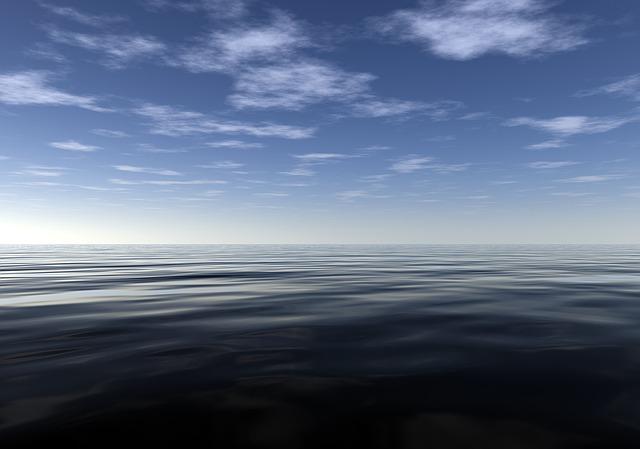Agenda for Change 2016: oceans of wealth and security
Posted By Anthony Bergin on May 31, 2016 @ 10:00

This piece is drawn from Agenda for Change 2016: strategic choices for the next government [1].
Australia’s a three ocean country with significant national interests in the Pacific, Indian and Southern Oceans, as well as interests the Coral Sea and in the Arafura and Timor seas. Oceans define our geography. They’re critical to our security, with our dependence on maritime commerce and the maintenance of freedom of movement for shipping.
The 2016 Defence White Paper identifies three strategic defence interests, all of which relate to the maritime domain, and that’s reflected in our future military capability investment program—in particular through investment in an expansion of naval and air capabilities.
It’s also clear that the oceans link us with our trading partners, provide resources and wealth and offer a defence against possible aggression.
The maritime domain over which Australia has some jurisdiction is nearly twice the area of the continental landmass of Australia. We have responsibility for a search and rescue area that’s over one-tenth of the earth’s surface. More than 75% of our exports and imports by value go by sea and over 99.9% by weight.
Our maritime borders require enforcement in the face of unregulated people movement, illegal fishing and goods, the safety of shipping and the introduction of marine pests.
We’re engaged in regional maritime security architecture through our involvement in bodies such as the Indian Ocean Naval Symposium, the Indian Ocean Rim Association, Western Pacific Naval Symposium, the Extended East Asia Maritime Forum, the East Asian Summit and the Heads of Asian Coast Guard Agencies.
Australia’s ocean industry sector contributes significantly to our national economy. By 2025, our oceans are expected to contribute $100 billion [2] per annum to our economy, up from the current $47.2 billion annual contribution (excluding environmental services).
We have a clear obligation to protect the environment of our marine jurisdiction and conserve its living resources. But we still lack much of the scientific knowledge required to discharge this obligation effectively: we’re still yet to explore more than 75% of our marine estate.
The next government should commit to Australia providing leadership in the Indo–Pacific in oceans affairs. Countries can’t be good at everything, but we should try to be a smart nation in ocean affairs.
Oceans policy should be centre stage in terms of our strategic relations in the Indo–Pacific: many of those countries have extensive maritime interests, including significant ocean zones that need to be managed.
To strengthen our Indo–Pacific oceans and fisheries diplomacy and leadership we should appoint an Ambassador for Ocean and Fisheries (as exists, for example, in the Republic of Korea) to make the most of the political and economic opportunities from oceans policy for the region.
We need a coordinated whole of government approach to the blue economy. Public policy for the oceans is still largely determined on a sectoral basis. To reflect a truly whole-of-government approach, an Office of Oceans Affairs should be established in the Department of the Prime Minister and Cabinet. This central policy coordination of oceans affairs occurs in France, Japan and South Korea.
It would offer higher level oceans policy coordination than exists through the security focused Joint Agencies Maritime Advisory Group, chaired by Commander, Maritime Border Command, which oversees the development of capabilities and coordination issues in maritime surveillance and enforcement.
An Office of Ocean Affairs could generate an Outlook for Australia’s Oceans which would look at status and trends in resources, natural and economic and social. It could be a risk assessment with a forward looking horizon and encourage policy and public debate about our nation’s aspirations for the seas that surround us and on which we depend.
An Office of Ocean Affairs should also convene a whole of government task force to develop an Australian maritime security strategy to provide strategic guidance to a wide range of agencies on delivering maritime security at home and at the regional and international levels.
The best model of what I have in mind here has been produced by the UK [3], but there’s other examples published by the US [4] and the European Commission [5].
The oceans and seas around Australia are central to our future prosperity and security. All countries share in both the benefits of safer and more secure oceans—and the responsibility for addressing major threats and challenges to maritime security.
Regional cooperation is fundamental to the maintenance of maritime security and safety, and Australia should be a leader in this regard in our adjacent oceans and seas.
We could achieve much by exploiting the economic and strategic potential of the oceans, and at relatively little cost, but with enormous political benefit. We should view the seas as a bridge that links Australia with the world.
Article printed from The Strategist: https://aspistrategist.ru
URL to article: /agenda-change-2016-oceans-wealth-security/
URLs in this post:
[1] Agenda for Change 2016: strategic choices for the next government: https://www.aspistrategist.ru/publications/agenda-for-change-2016-strategic-choices-for-the-next-government
[2] are expected to contribute $100 billion: http://frdc.com.au/environment/NMSC-WHITE/Documents/NMSP_TS_040116%20website%20update.pdf
[3] has been produced by the UK: https://www.gov.uk/government/publications/national-strategy-for-maritime-security
[4] published by the US: http://www.defense.gov/Portals/1/Documents/pubs/NDAA%20A-P_Maritime_SecuritY_Strategy-08142015-1300-FINALFORMAT.PDF
[5] the European Commission: http://ec.europa.eu/maritimeaffairs/policy/maritime-security/index_en.htm
Click here to print.